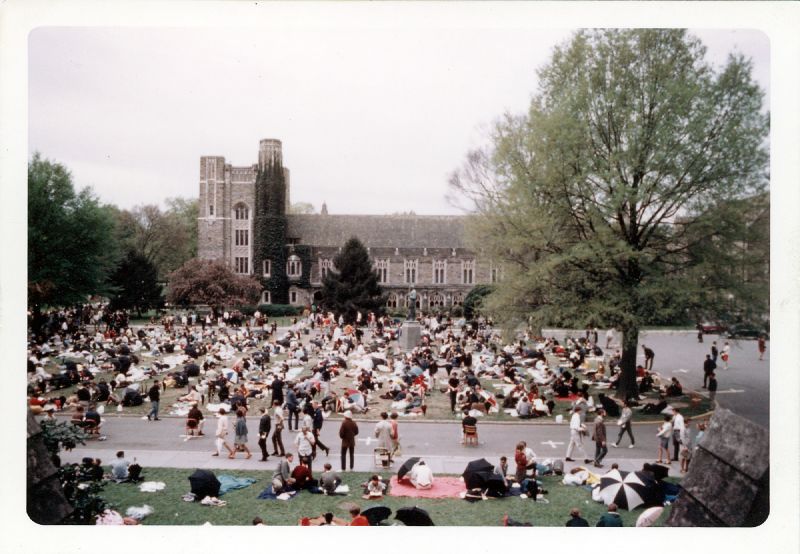American society seemed to change at breakneck speed in the 1960s, all of it fueled by activism and protest and generating, in turn, strong conservative opposition. Continuing protest for civil rights for African Americans was joined by a push for equal rights for women, efforts to end poverty, battles on university campuses over free speech, the beginnings of a gay rights movement, and — as we’ll see in the next chapter — arguments at home over the Vietnam War. In this chapter we’ll examine some of these movements and the changes they succeeded — and didn’t succeed — in creating.
Section Contents
- Lyndon Johnson and the Great Society
- The North Carolina Fund
- Primary Source: Billy Barnes on Fighting Poverty
- Harold Cooley, Jim Gardner, and the Rise of the Republican party in the South
- Primary Source: UNC Students Against the Speaker Ban
- Primary Source: Jesse Helms's Viewpoint on the Speaker Ban
- The Women's Movement
- Primary Source: Segregated Employment Ads
- Primary Source: Bill Hull on Gay Life in Midcentury North Carolina
- The Aftermath of Martin Luther King's Assassination
- Interpreting Historical Figures: Howard Lee
- Interpreting Historical Figures: Senator Sam Irvin

